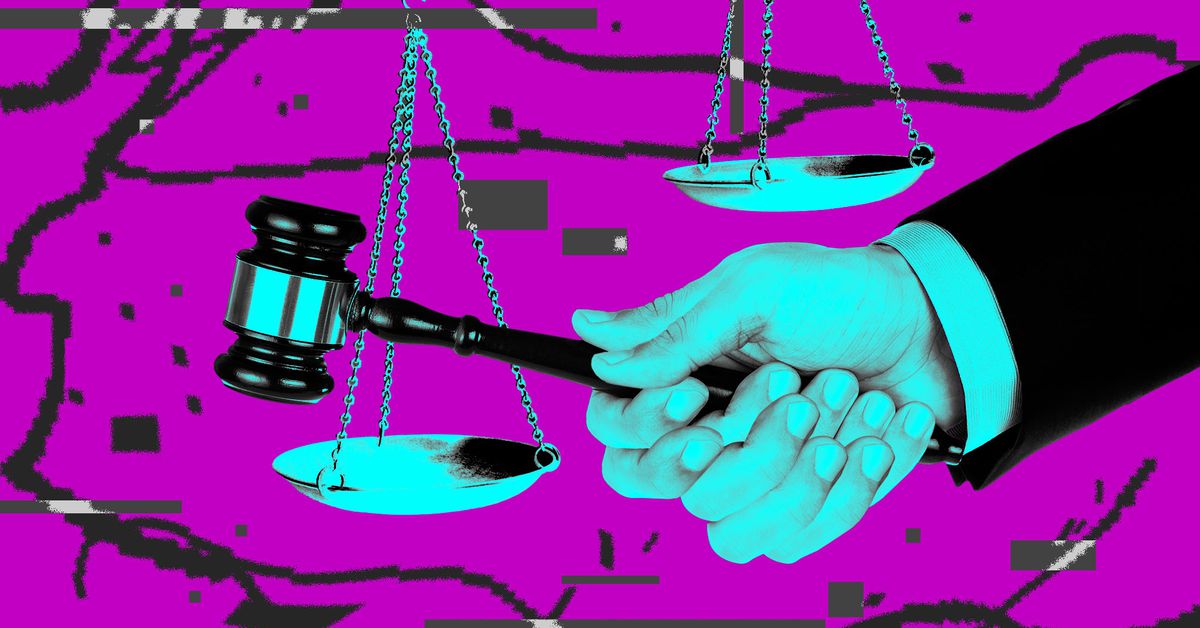- 3 Posts
- 136 Comments

 11·4 days ago
11·4 days agoWhy use a search engine at all when you can have your browser directly text your mom.

 41·6 days ago
41·6 days agoIt’s 400 hours of audio, the transcripts ended up being 5 million words, and only snippets of it are useful.

 152·6 days ago
152·6 days agoThese important limitations highlight why it’s still important to have humans involved in the analysis process here. The NYT notes that, after querying its LLMs to help identify “topics of interest” and “recurring themes,” its reporters “then manually reviewed each passage and used our own judgment to determine the meaning and relevance of each clip… Every quote and video clip from the meetings in this article was checked against the original recording to ensure it was accurate, correctly represented the speaker’s meaning and fairly represented the context in which it was said.”
It’s literally the paragraph right after.
They verify it.

 11·6 days ago
11·6 days agoI was actually thinking of setting up something similar for the mountain of ufo related docs they keep dropping every few months. They tend to use obscure words and even slip in typos so just searching through them doesn’t work very well.
publicly-traded German high-performance computing (HPC) firm ParTec AG, whose CEO Bernhard Frohwitter has considerable expertise in patent monetization.
“Patent monetization” is an interesting way to put it.
As a side note, I love how the article is structured.

 171·8 days ago
171·8 days agoWhisper has been known to hallucinate during long moments of silence. Most of their examples though are most likely due to bad audio quality.
I use whisper quite a bit and it will fumble a word here or there but never to the extent that is being shown in the article.
You would need a pretty good thickness of water and it becomes complicated shipping it up into space.

 4612·9 days ago
4612·9 days agoEvery other store, but at a higher price point.
It’s the same shit everywhere, the government is just making sure you can’t buy direct.

 113·11 days ago
113·11 days ago“I’m usually turning around and stopping the operation to see a CT scan; looking to see what happened with the endoscopy [another small camera that provides a closer look at organs]; looking at the monitor for the heart rate,” Horgan says.
Horgan says that wearing headsets during surgeries has improved his effectiveness while lowering his risk of injury.
Just if it wasn’t clear to anyone else.
Such measurable biometric characteristics include facial features, gait, voice, or patterns in the iris of your eye.
It is when you are using neural networks to do the matching. It’s one of the main point of the Europe Unions AI bill which outlaws the use of machine learning tools like these on citizens by goverments or compagnies. There’s a couple of exceptions mostly when it’s a national security issue.

 286·12 days ago
286·12 days agoUsing public facing data to build machine learning model is not against copyright laws. There is a transformative clause for a reason.
Strengthening copyright laws will only hurt the open source scene and give companies like openai and google a soft monopoly.
Not only that but the money is going to go to data brokers and platforms like reddit and getty. Individuals aren’t getting a dime.

 12·12 days ago
12·12 days agoIt makes it seems worse. His parents knew he was having problems and still left a gun within easy reach.

 227·13 days ago
227·13 days agoI’m mostly looking for something that will comb news sites and tech blogs an hour before I get up and make me curated daily commentary.
I like podcasts but if I’m switching off audio books, it’s mostly because I’m having trouble concentrating. Music with a news tidbit every 15 minutes isn’t as taxing, specially on the drive back, but makes it a lot more interesting then just music alone.

 4321·13 days ago
4321·13 days agoSo this a terrible use case and clearly fake interviewing dead people is plain silly.
That being said, I do have quite a drive to do everyday and I end up listening to the radio whenever I get bored of audio books. I would absolutely love a system that would mix up my favorite songs with AI hosts talking about recent news and subjects I specifically care about.

 99·16 days ago
99·16 days agoWe fund the project entirely from sales of the Confluence integration.
Just to extend the conversation, the change implements one thing, it protects our revenue in the atlassian ecosystem.
What it does it protect the future development of the project by protecting the revenue. That’s more useful to you than the license being fully open source.
The primary losers of this change is anyone wanting to integrate draw.io into the Atlassian ecosystem.
I mean this does seem kind of fair. I’m not familiar with Confluence and Atlassian but it seems something mostly aimed at corporations, I’m not sure of how common it’s use is and how much is affected by this though.
I’m okay with something being 98% open source so they can survive on the extra 2%. And I much rather specific non competes for certain platforms then broad non-commercial clauses.

 166·20 days ago
166·20 days agoWorking isn’t a celebration of humanity.
Productivity is not the enemy, our economic systems which takes all the benefits of higher productivity and gives it to small percentage is.

 2·22 days ago
2·22 days agovLLM can only run on linux but it’s my personal favorite because of the speed gain when doing batch inference.

 95·23 days ago
95·23 days agoIt is currently completely legal to use public facing work to train and fine tune AI models.
It’s fair use and you can’t copyright away fair use, this shows absolutely nothing.

 5·24 days ago
5·24 days agoIsn’t the problem that it’s only a one way street? And their users vastly outnumber ours?
So you end up in a situation where you give them content and engagement but receive nothing back, since their users can’t see our content. Even worst, our own users are more likely to post on their infrastructure because of the higher count, so the servers federated with them just end up being ghost servers to hold users.
You end up being at their whim because what you had before died.


Lemmy let’s them respond to you even when blocked. Kind of funny to block someone for harassment and still see a comment removed pop up behind one of my comments a few hours later.
I find it fair in a way, I just wish it hid it from me completely since curiosity usually gets the best out of me. I’ve only had to block one person this whole time anyways, so it’s really not the end of the world either.